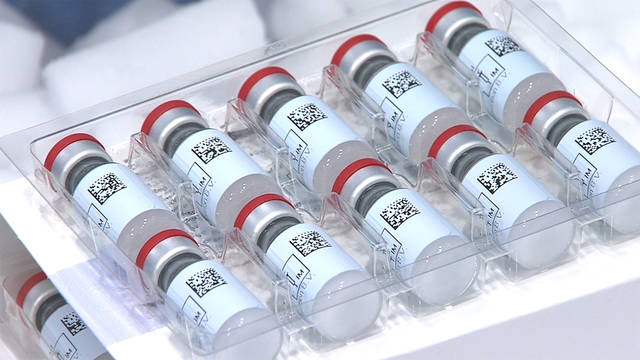The likely addition of a third covid vaccine option next month will be a “blessing,” health professionals in the Pittsburgh region said.
“It means vaccine will be available to people faster,” said Graham Snyder, medical director of Infection Prevention and Hospital Epidemiology at UPMC. “It means that for whatever reason, if a person is not a candidate to receive one vaccine … then we have another option. And the nuances of the vaccines themselves will allow us to be more flexible in the distribution.”
A new vaccine from Johnson & Johnson is expected to receive emergency use authorization from the U.S. Food and Drug Administration this weekend, after agency scientists confirmed the vaccine’s effectiveness and safety. Johnson & Johnson has indicated it could have 20 million doses available by March and 100 million by late June.
Unlike the existing covid vaccines from Pfizer-BioNTech and Moderna, the Johnson & Johnson vaccine requires only one dose for full inoculation, and it can be stored using traditional refrigeration.
“The operation side is so much simpler,” said Dr. Thomas Walsh, an infectious disease expert at Allegheny Health Network. “It’s much easier to get into difficult-to-reach populations throughout the country, more isolated or underserved areas where there’s a lot of logistics issues with a two-dose vaccine with ultra-cold storage.”
The Pfizer and Moderna vaccines are both made from mRNA, which provides instructions to cells to create a harmless piece of the “spike protein” found on the surface of the novel coronavirus. According to the Centers for Disease Control and Prevention, once that protein piece is made, a person’s body can break down the genetic instructions and get rid of the virus altogether.
The Johnson & Johnson vaccine has a different approach. It is made from a “viral vector,” a harmless adenovirus or cold virus, with a piece of its genetic instructions removed and replaced with genes from the novel coronavirus. Once injected, the vaccine essentially teaches a person’s immune system, using the genetic information in the viral vector, to fight off the virus.
Though the methods are distinct from one another, Snyder noted the effect of all three vaccines is the same: all three teach a person’s immune system how to fight off covid-19, and all three prevent individuals from developing severe symptoms that can lead to hospitalization or death.
“It is stimulating our immune system to recognize the virus,” he said. “In that sense, it’s performing the same function.”
The Johnson & Johnson vaccine was tested in trials that included areas where covid variants have been identified, including South America and South Africa. Research thus far has shown it effective at providing protection from the more transmissible versions of the virus.
Critics have pointed out the Johnson & Johnson vaccine has a lower rate of protecting individuals from developing symptoms of covid-19: Johnson & Johnson’s rate is around 66%, while Pfizer’s is 95% and Moderna’s is 94%. But 66% is still a “spectacular” number, Snyder said, noting that vaccines for most illnesses rarely reach such heights of efficacy. Most flu vaccines have rates around 40%, for example.
Besides, Walsh added, each vaccine was tested with different time points, different patient populations and different prevalence of covid variants. It is impossible to say one vaccine is worse than another, he said.
“It’s a completely wrong metric to look at,” Walsh said.
It all comes down to what the goal of mass vaccination is, he said. While the rate of preventing symptomatic covid-19 differs, especially when it comes to the covid variants, all three options are “fantastically efficacious” at preventing severe disease hospitalizations and deaths. The rate of preventing severe illness approaches 100% for Pfizer, Moderna and Johnson & Johnson (85% for Johnson & Johnson).
“And that’s really the goal: When can we get back to whatever a new normal will exactly look like?” Walsh said. “When can we turn this disease from a life-threatening disease that has people hospitalized on a ventilator, to the common cold?”
At the end of the day, the choice of which vaccine to take is a personal decision, the physicians say. But they also give some strong advice for individuals who are confronted with the option of receiving a dose, noting that all three vaccines offer significant health advantages compared to not receiving one at all.
“If you have an opportunity to get a vaccine,” Snyder said, “get it.”








